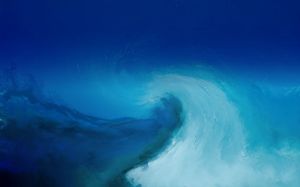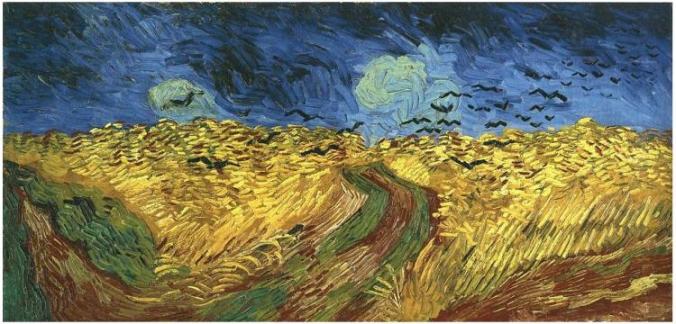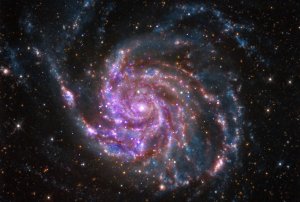Here is one piece of writing generated from exercises that we did at yesterday’s Renegade Writers. Renegade Writers is a twice-a-month writing group in the Lafayette, LA area that meets to write new. It is free and open to anyone willing to rise to the challenge and be respectful.
I led the exercises yesterday. Below the poem, I have posted my handouts for the workshop, in case you want to play along. My poem came from a free-write following the reading of Mark Doty’s poem, “A Green Crab’s Shell.” I think the word green triggered the flow for me.
The Queen Runs Away
She sits
all bow to her
rain falls
a handmaid
wipes her face
her arms cold
she shivers
all bow
she rises
dress soaked
skin shows through
her feet bare
her breasts apparent
through white chemise
red rushes to her face
the boy holds an umbrella
daring, she dares to listen
to the voice, to follow
her impulse
to the blue house
red paint on walls, slate floor
a cold bath
“I will not bleed again.”
But she does, once more
and all goes to ruin
she tells no one
food, paper and pen
she stays unclothed
blinds drawn
rain tinny on the roof
she dances she sleeps she prays she cries
jam on a biscuit
sun behind the trees
wine from a rough bowl
she talks to lovers
who are not there
makes peace
with the deranged side of herself
forgives
her own insolence
she changes colors:
green, to blue, to red—
she settles on marigold
she invents a name so holy
it cannot be spoken
she calls upon it
when she wants to remember
this place, when she wants
to be free.
©2016 Clare L. Martin
Renegade Writers
June 11, 2016
Clare L. Martin
PROMPT: Unpredictable Language
After reading “Blackberrying,” consider a vivid, clear, and simple memory of a summer activity. It could be blackberry-picking, seashell-collecting, swinging in a park, etc. Use unpredictable language to show the reader the experience. Is there emotion in your experience? What is the emotional impetus that led you to choose this memory? Is it necessary in the writing? Can you show it in the language without telling us explicitly what it is?
Blackberrying
BY SYLVIA PLATH
Nobody in the lane, and nothing, nothing but blackberries,
Blackberries on either side, though on the right mainly,
A blackberry alley, going down in hooks, and a sea
Somewhere at the end of it, heaving. Blackberries
Big as the ball of my thumb, and dumb as eyes
Ebon in the hedges, fat
With blue-red juices. These they squander on my fingers.
I had not asked for such a blood sisterhood; they must love me.
They accommodate themselves to my milkbottle, flattening their sides.
Overhead go the choughs in black, cacophonous flocks—
Bits of burnt paper wheeling in a blown sky.
Theirs is the only voice, protesting, protesting.
I do not think the sea will appear at all.
The high, green meadows are glowing, as if lit from within.
I come to one bush of berries so ripe it is a bush of flies,
Hanging their bluegreen bellies and their wing panes in a Chinese screen.
The honey-feast of the berries has stunned them; they believe in heaven.
One more hook, and the berries and bushes end.
The only thing to come now is the sea.
From between two hills a sudden wind funnels at me,
Slapping its phantom laundry in my face.
These hills are too green and sweet to have tasted salt.
I follow the sheep path between them. A last hook brings me
To the hills’ northern face, and the face is orange rock
That looks out on nothing, nothing but a great space
Of white and pewter lights, and a din like silversmiths
Beating and beating at an intractable metal.
PROMPT: Miracles
After reading Whitman’s poem, answer his question, “What stranger miracles are there?” in a list. List as many miracles, natural or man-made, that you can think of. Draw from your list the impetus for your writing. It could be just one or several of the items from your list, or an idea sparked from a line or lines from Whitman’s poem itself.
Miracles
Walt Whitman, 1819 – 1892
Why, who makes much of a miracle?
As to me I know of nothing else but miracles,
Whether I walk the streets of Manhattan,
Or dart my sight over the roofs of houses toward the sky,
Or wade with naked feet along the beach just in the edge of the
water,
Or stand under trees in the woods,
Or talk by day with any one I love, or sleep in the bed at night
with any one I love,
Or sit at table at dinner with the rest,
Or look at strangers opposite me riding in the car,
Or watch honey-bees busy around the hive of a summer
forenoon,
Or animals feeding in the fields,
Or birds, or the wonderfulness of insects in the air,
Or the wonderfulness of the sundown, or of stars shining so
quiet and bright,
Or the exquisite delicate thin curve of the new moon in spring;
These with the rest, one and all, are to me miracles,
The whole referring, yet each distinct and in its place.
To me every hour of the light and dark is a miracle,
Every cubic inch of space is a miracle,
Every square yard of the surface of the earth is spread with the
same,
Every foot of the interior swarms with the same.
To me the sea is a continual miracle,
The fishes that swim—the rocks—the motion of the waves—the
ships with men in them,
What stranger miracles are there?
PROMPT: Man vs. Nature
Consider why the poem is titled “Summer Holiday.” What are the natural elements in the poem? What is left of unspoiled nature that strains to stand amidst all of our constructions? What do you have to say about that? Is there an ultimate price we will pay? If so, what is that price to our very own psyches? Write that.
Summer Holiday
Robinson Jeffers, 1887 – 1962
When the sun shouts and people abound
One thinks there were the ages of stone and the age of
bronze
And the iron age; iron the unstable metal;
Steel made of iron, unstable as his mother; the tow-
ered-up cities
Will be stains of rust on mounds of plaster.
Roots will not pierce the heaps for a time, kind rains
will cure them,
Then nothing will remain of the iron age
And all these people but a thigh-bone or so, a poem
Stuck in the world’s thought, splinters of glass
In the rubbish dumps, a concrete dam far off in the
mountain…
A Green Crab’s Shell
Mark Doty, 1953
Not, exactly, green:
closer to bronze
preserved in kind brine,
something retrieved
from a Greco-Roman wreck,
patinated and oddly
muscular. We cannot
know what his fantastic
legs were like—
though evidence
suggests eight
complexly folded
scuttling works
of armament, crowned
by the foreclaws’
gesture of menace
and power. A gull’s
gobbled the center,
leaving this chamber
—size of a demitasse—
open to reveal
a shocking, Giotto blue.
Though it smells
of seaweed and ruin,
this little traveling case
comes with such lavish lining!
Imagine breathing
surrounded by
the brilliant rinse
of summer’s firmament.
What color is
the underside of skin?
Not so bad, to die,
if we could be opened
into this—
if the smallest chambers
of ourselves,
similarly,
revealed some sky.




 This is a tried and true writing exercise that I use often to get the juices flowing. Pick a beginning phrase and complete the sentence. Many writers have used the litany to create memorable poems that juxtapose seemingly unrelated things, unified by the opening of the sentence.
This is a tried and true writing exercise that I use often to get the juices flowing. Pick a beginning phrase and complete the sentence. Many writers have used the litany to create memorable poems that juxtapose seemingly unrelated things, unified by the opening of the sentence.
